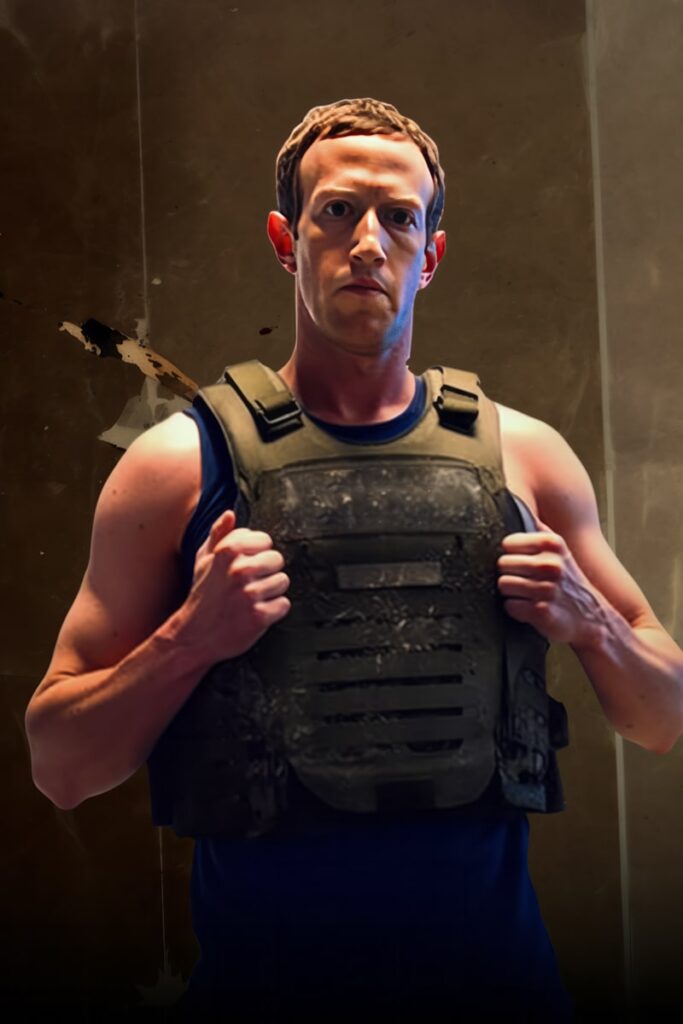In a compelling and wide-ranging interview on the Modern Wisdom podcast (dated June 2, 2025), retired U.S. Navy SEAL officer, bestselling author, and influential podcaster Jocko Willink sat down with Chris Williamson to dissect the anatomy of “Unstoppable Confidence.” This wasn’t just a surface-level chat; it was a deep exploration into the foundational principles that forge resilience, leadership, and true autonomy. Willink, drawing from his extensive experience in the crucible of combat and his subsequent career guiding others, laid bare the often misunderstood relationship between discipline, freedom, and the unwavering self-belief that allows individuals to navigate life’s most daunting challenges.
The conversation, rich with actionable insights and raw honesty, covered everything from confident decision-making and conquering fear to the stark realities of firefights and the profound meaning behind Willink’s iconic mantra, “Discipline Equals Freedom.”
The Bedrock of Choice: No Solutions, Only Trade-Offs (00:00)
The interview kicked off with a powerful quote from Thomas Sowell, a favorite of Willink’s: “There are no solutions, only trade-offs.” For Willink, this isn’t a pessimistic view but a pragmatic one. “You’re never going to completely solve anything in your life or in the world,” he explained. “There’s always going to be compromises that you have to make.” This understanding is crucial because it forces a recognition of priorities. When Williamson asked how to deal with the emotional pain of letting one area stagnate while focusing on another, Willink emphasized the necessity of identifying the current priority: “Sometimes the family needs to be the priority. Sometimes the business, sometimes the other business, sometimes the health… you’re just going to have to weigh those things out.” This ties directly into a core SEAL principle: “Prioritize and Execute.” The ability to detach, step back, and assess the bigger picture (00:03:28) is vital to avoid being consumed by one area to the detriment of all others. As Willink noted, one cannot abandon health entirely, as it’s foundational: “I probably haven’t taken more than, you know, two or three days off from working out in decades.”
Forging Confidence: The Power of Admitting “I Don’t Know” (06:23)
When pressed on how to cultivate more confidence in decision-making, Willink offered a counterintuitive yet profound piece of advice: embrace humility. “I think one of the most profound things that you can do to become more confident is to become okay with saying, ‘Yeah, I’m not exactly sure what to do right now.’” This, he argued, lowers the immense pressure of always needing to have the answers. By admitting uncertainty, one opens the door for collaboration and genuine problem-solving, rather than pretending and potentially leading down a wrong path. He illustrated this with a hypothetical meeting scenario: “If I come in and I’m like, ‘I don’t want Chris to know that I don’t know how to do this… so I’m going to pretend to be confident.’ I think that’s problematic.” Instead, openly stating “I’m not really sure what to do here” is liberating and, ironically, builds true confidence and respect. This humility extends to leadership, where acknowledging a subordinate’s superior experience in a specific area and deferring to them (“Chris, you’ve already run these type of operations. Why don’t you take lead on this?”) actually elevates the leader.
Williamson shared an anecdote about a technical issue during a cinema production (00:10:14) where crossed XLR cables created an antenna effect, picking up an FM radio station. No one initially knew the solution, but humble, collective problem-solving (including Googling “problem + Reddit”) led to the answer. This, Willink agreed, exemplifies the practical power of admitting a lack of immediate knowledge.
The Antidote to Fear: The Single Word “Go” (20:39)
Fear, Willink stated, is a universal human experience, but its power can be neutralized. His strategy? A single, decisive action encapsulated in the word: “Go.” He elaborated, “All that fear that’s in your head, all the what-ifs and the scenarios that you create inside your own mind that are way worse than anything that is actually going to happen, they all disappear when you go.” The period of anticipation, the “waiting to go,” is where fear festers. Once movement begins, the mental chatter subsides. He described this from combat experience: “Once you like stop, get out of the vehicle, all those things go away. And you’re doing the thing and you’re not worried about it anymore.” This isn’t necessarily innate but a trained response, honed through repeated exposure to fear-inducing situations, from obstacle courses in SEAL training to repelling and parachuting. He even wrote a children’s book, “Mikey and the Dragons,” where the protagonist discovers the dragons he fears are tiny once he confronts them, illustrating how fear is often an internal construct magnified by inaction.
The Unvarnished Truth of a Firefight (31:59)
Williamson sought to understand what civilians often miss about modern firefights. Willink highlighted the sheer “chaos and confusion.” He used the analogy of paintball training where trainees couldn’t locate shooters because paintballs lack muzzle flash and loud reports. “Guess what? You’re not going to know where you’re getting shot at from,” he stated, emphasizing how sound dynamics in urban environments further complicate situational awareness. Modern films like “Warfare” (directed by a fellow SEAL) are beginning to capture this realism, a departure from more sanitized Hollywood portrayals. He also touched on sensory experiences: the overwhelming noise of gunfire that one might not consciously register in the heat of battle, or how crucial radio communications can become mere background noise amidst the intensity, requiring direct, verbal commands to cut through. The adrenaline, while initially heightening senses, can also lead to detachment or a perceived slowing of time, a phenomenon sometimes depicted in films like “Saving Private Ryan.”
“Discipline Equals Freedom”: Deconstructing the Misconceptions (50:19)
Willink’s famous maxim, “Discipline Equals Freedom,” is often debated. He addressed the common critique that excessive discipline might lead to a joyless existence. “Yep. If you are so disciplined that you never go out and you never eat a pizza, cool… you might be bummed out.” He clarified that the principle isn’t about absolute, unyielding rigidity in every micro-aspect of life. More importantly, he stressed that discipline is not an inherent trait but “a choice.” He shared a personal story: “My dad didn’t want to train [one day] and he had to go, ‘Hey, doesn’t matter whether you want to do it or not, you got to have the discipline, go do it.’” This highlights that even for someone synonymous with discipline, the internal battle to choose the disciplined path over momentary comfort is constant. Discipline, therefore, is an accessible tool for everyone, not a gift bestowed upon a select few.
Navigating Dark Times & Sustaining Drive (1:00:11 & 1:13:50)
For those feeling lost or seeing “no light at the end of the tunnel,” Willink’s advice reverts to fundamental principles: assess your options, prioritize, and “take action and move forward.” He compared it to gaining a submission in Jiu-Jitsu: “You have to do jiu-jitsu until you submit someone… all of a sudden you go, ‘Oh, wow. I made progress.’” Small victories, even just getting out of bed and achieving one small thing, can build momentum.
When success is achieved, how does one stay driven? Willink’s approach is to “explore new arenas,” making “very small decisions at a time” rather than “all in on some chance.” He uses the military concept of “maneuver warfare”: probing for weaknesses (“gaps”) and exploiting them, while pulling back from strong resistance (“surfaces”). This iterative process keeps him engaged and prevents stagnation.
Guidance for Directionless Young Men (1:16:36)
Willink, while acknowledging the narrative, expressed a degree of puzzlement about “directionless young men,” citing the many driven young individuals he encounters across various industries. However, for those feeling adrift, his message was stark and urgent: “Take about 15 minutes and figure out what the hell you want to do with your life. And I would start getting after it.” He recounted his experience training MMA fighters, initially telling 22-year-olds they had plenty of time, but later realizing and advising the opposite: “You need to get on it… You’re almost out of time. You’re 22. You’re late.” The core message is to cultivate a sense of urgency and take ownership of one’s path.
The Double-Edged Sword of Comfort (1:23:35)
“Comfort is a slow death,” Willink has stated. Balancing rest with the drive to avoid comfort-induced weakening is key. He drew an analogy from MMA fight camps: “It’s so obvious when someone is overtraining.” If performance dips significantly, rest is prescribed. His personal rule: “Oh, you need a day off today. You can’t take it today. You can take it tomorrow.” This ensures one pushes through immediate feelings of wanting to quit, but still allows for genuine recovery if the need persists the next day, preventing burnout while maintaining discipline.
Military Recruitment, Leadership Changes & The Future of Warfare (1:30:05 & 1:37:39)
The conversation shifted to contemporary issues. Willink attributed the recent surge in U.S. Army recruitment to a “pro-American and patriotic” new administration and figures like Pete Hegseth, whom he sees as an “aggressive change agent” willing to tackle bureaucratic bloat within the military. He noted the historical absurdity of having more generals and admirals today than during World War II.
Looking at the future of warfare, Willink pointed to the conflict in Ukraine as a harbinger of change, with drones (some even trailing fiber optic cables for control) and cyber capabilities revolutionizing the battlefield. While he believes the fundamental principles of warfare remain, and a human element will likely always be necessary to “secure and hold a place,” he stressed the need for an open mind to rapid technological advancements. He provocatively suggested that a “Cyber Force,” dedicated to the war of ideas and information, might be more critical than a Space Force, as influencing thought is a powerful, albeit unsettling, form of warfare.
Jocko’s Next Chapter (1:57:06)
The interview concluded with a glimpse into Willink’s ongoing projects, notably the upcoming dramatization of one of his books, executive produced by him and starring Chris Pratt. The project has completed filming and is currently in the editing phase, promising another avenue through which Willink’s impactful lessons will reach a broader audience.
Ultimately, Jocko Willink’s dialogue with Chris Williamson on Modern Wisdom was a masterclass in practical philosophy. It underscored that true, unstoppable confidence isn’t a mystical quality but the hard-won result of consistent discipline, the courage to act despite fear, the humility to learn, and the wisdom to understand that every choice is a trade-off on the path to a self-determined life.

